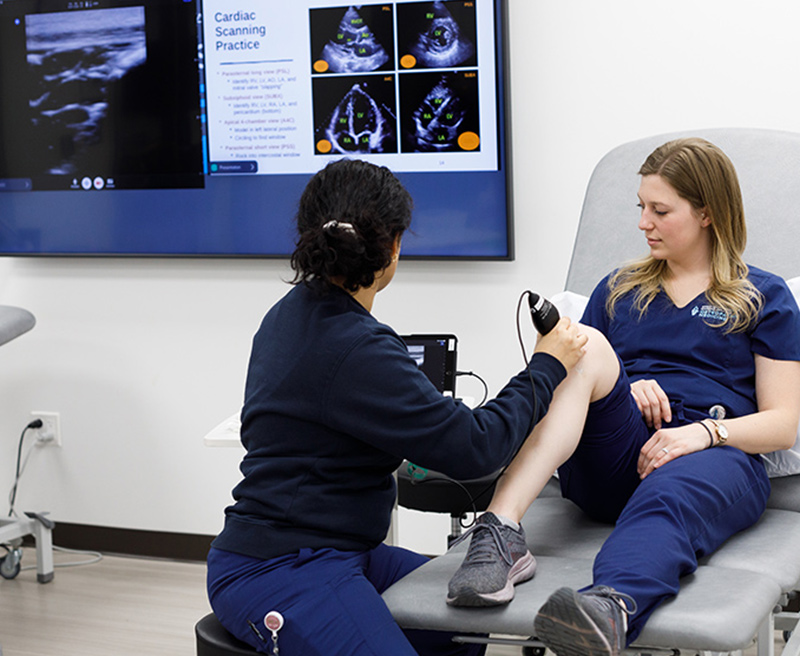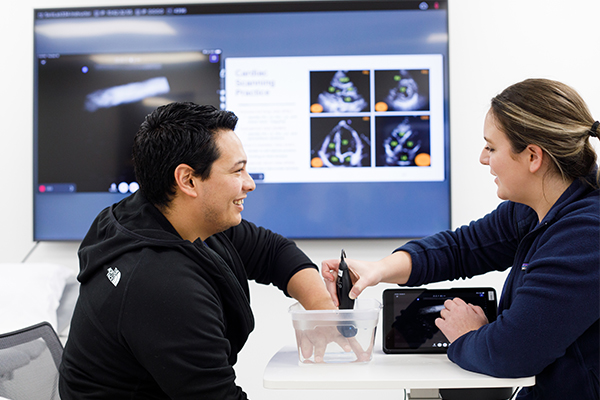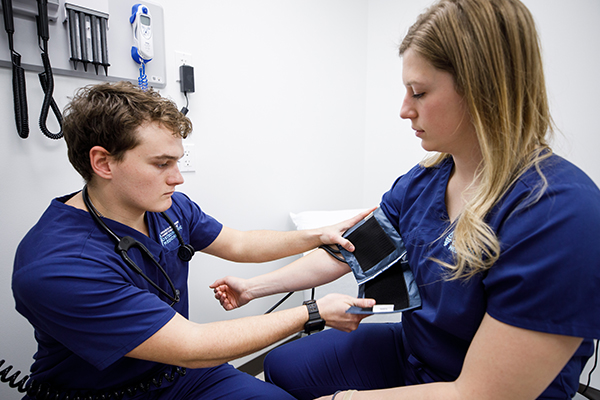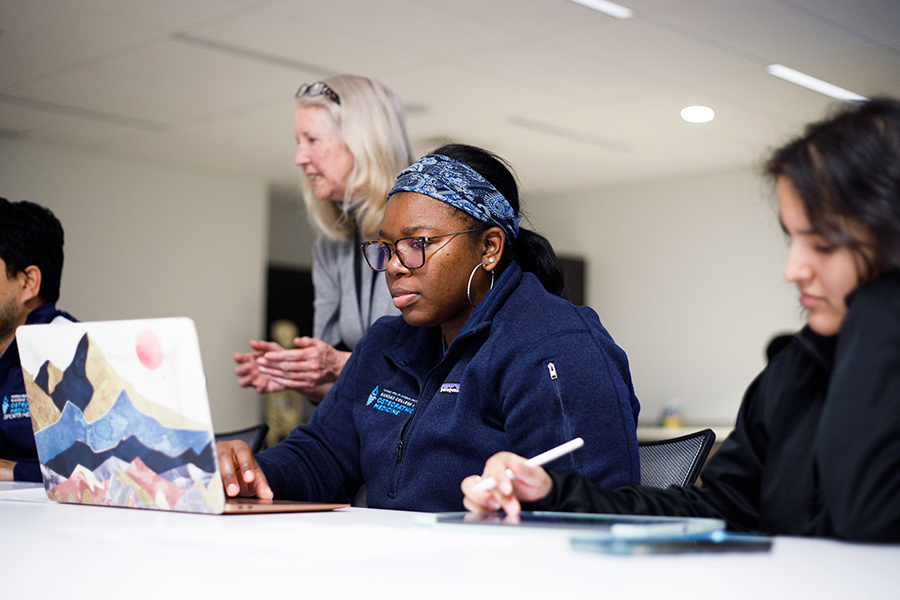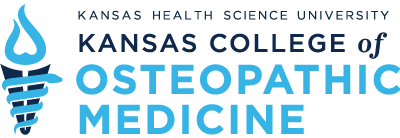Curriculum Designed for Modern Medicine
The KansasCOM curriculum has been designed to prepare students for professional clinical practice and for leadership roles in a variety of health care settings. Our curriculum focuses on several key concepts in modern medicine, utilizing cutting-edge technology and models in adult learning theory to facilitate student success.
The KansasCOM Experience
Our program is based in the patient presentation or case-based curricular model, meaning students learn primarily through studying clinically based cases that highlight the symptoms presented by the patient.
The end goal of the case-based model is to arrive at a differential diagnosis efficiently and effectively. Students will work with faculty who have scientific expertise to understand the underlying reasons for the medical issue, as well as clinical experts who will explain the clinical presentation and treatment of the issue.
Years One and Two: Patient Presentation and Case-Based Curriculum
Learning in the first two years is reinforced by several key concepts to enhance and solidify knowledge.
- A focus on serving underserved communities
Being able to serve the underserved is not only a privilege but also a professional obligation. Students will have the opportunity to serve these communities in rural and urban environments. - An emphasis on physician health and wellness
Physicians who embrace and practice wellness on a regular basis are more likely to avoid the burnout often associated with health care professions. At KansasCOM, we are committed to instilling the key concept of health and wellness in each of our students.
Years Three and Four: Clinical Clerkship and Advanced Clinical Training
In their third and fourth years, students will put the art and science of being a physician into practice. Students will be matched with a clinical clerkship preceptor, at a hospital or clinic, where they will continue to work with real patients. During this process, students will receive advanced clinical training through both inpatient and outpatient clerkships in a wide range of medical settings.
The lessons learned during years three and four will be reinforced and enhanced by several key opportunities:
- Focus on primary care and a variety of specialties
The third and fourth years give students the opportunity to investigate areas of specialization. The possibilities are endless. - Experiencing clinical success in rural and underserved communities
Research suggests students exposed to rural and underserved populations and who receive comprehensive training in cultural competence make better physicians. - Providing a breadth and depth of experiences that enhance learning
The successful application of didactic coursework is key to students becoming great physicians. Students will experience a wide range of clinical realities and experiences that reinforce retention of course content and clinical skills.
Board Exam Preparation
Several KansasCOM faculty have participated in item development for the National Board of Osteopathic Medical Examiners (NBOME). Their experience and expertise have informed how KansasCOM prepares students for the NBOME COMLEX-USA examination series. Students will be provided multiple methods of study to best prepare for these examinations.
As the industry of health care continues to evolve, KansasCOM is committed to remaining at the forefront of innovation to improve patient care locally and nationally. Listed below are the modules that are threaded into the DO program curriculum:
- Epistemology & the Historical Foundations of Medicine
- Statistics, Epidemiology, Research, and Scientific Literacy
- Emerging Technologies and New Sciences
- Medicolegal Issues & Healthcare Ethics
- Clinical Informatics and Artificial Intelligence
- Stress Biology: From the Endothelium to the Globe
- Healthcare Organization, Policy, & Economics
- Precision Medicine and Population Health
- Systems Thinking & Models of Healthcare Work Systems
- Human Factors in Healthcare & Patient Safety
- Team Science & Interprofessional Education
- Transdisciplinary Collaboration, Cultural Competency, & Diversity Principles

